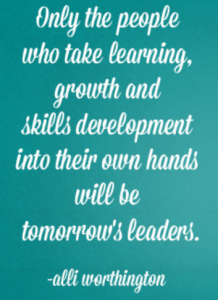Twelve Types of Comptency
There are Twelve Types of Competency to be Built
Developing competencies is a life-long quest, but it is most intense as a teenager. That is partly because so many competencies need to be developed, partly because you don’t have a lot of experience developing a lot of competencies and partly because so much is changing in your life all at once.
You are also dealing with the other two core challenges of the teen journey – figuring out who you are as a young man or woman and figuring out how to develop all kinds of relationships.
A major complicating factor is that, other than school, the world is not set up to present you with obvious opportunities to learn many of the life competencies you will need.
It Can be Intimidating
As a teenager you get thrown into a world where there is a wide and often intimidating range of competencies to be developed. That is because there simply is a surprising set of competencies required to be a successful young adult. Some are academic competencies, some are physical competencies, some are emotional/social competencies, some are relationship competencies, and some are self-management competencies.

This Goes Beyond School
These competencies go well beyond the competencies that people expect to develop in school, although school is the setting where many of these competencies can be developed.
Some of these competencies you will build because they are presented to you in classes, teams, groups and social circles that revolve around your school. But many will need to be developed by you using a good deal of initiative to find places where you can develop them and people that can support you in doing so.
Exercise Your Power – Be the Author – Make it Happen
You naturally get thrown into the heroic journey simply because the world demands that you build these competencies to be successful. You didn’t ask for this challenge. But, the key is to quickly become the author of the experience and take charge – as much as possible.

Twelve Types of Competencies
“Where & how can I develop them? Who can help?”

As you skim the competencies listed below, think about which ones can be developed in your school setting, which in your home, which in your neighborhood or community, which in volunteer or part-time jobs, etc. And think about which competencies you are most interested in developing.
- Social Competencies
Healthy relationships (lots of different kinds), collaboration, networking, conflict resolution, negotiating, empathy and support, healthy confrontation, assertiveness, active listening, being helpful/supportive, communicating needs and desires, compassion, conversation skills. Lots of competencies. - Intellectual/Academic Competencies
Intellectual curiosity, study habits/skills, classroom behavior, homework, memorization, analysis, writing papers, test taking, working with others, relationships with teachers, coaches, counselors. - Emotional Competencies
Recognizing feelings (your own and others), expressing feelings, empathy, impulse control, dealing with negative self-talk vs. positive self-talk, delaying gratification, managing anger, patience, sense of power/influence. - Physical Competencies
Physical fitness, sports/performing arts, healthy eating, medical/dental care, sleep, managing drug/alcohol use, risk management, managing abusive relationships, recovery from illness, injury, abuse, managing media use. - Cultural Competencies
Understanding and appreciating differences – race, ethnicity, gender, political, sexual orientation, religion, socio-economic status, national and regional influences, personal differences of taste. A surprising number of factors here. - Competencies for Managing the Social Media World
Balancing with face-to-face time, projecting yourself vs. protecting yourself, creating an authentic personal brand online, knowing what to post and what not to post, using different online tools, dealing with trolls, bullying, managing time online. - Competencies for Resilience
Stress management, flexibility, self-care, creativity, recovery, perseverance – how to come back from disappointments, failures and injuries or illnesses. - Competencies for Living Independently
Cooking, laundry, transportation, housing, job prep and pursuit, budgeting and money management, work skills, taking care of an apartment or house. - Competencies for Managing a Life
Purpose, values, meaning – planning, motivation, decision-making, risk assessment, organizing, analyzing, communicating, collaborating, creativity, change, accountability, self-management, project management. - Competencies for Being Part of a Group/Community
Connecting, contributing, modeling moral/ethical behavior and personal values, skills for being a good group member, being a team leader, developing groups or teams. - Competencies for a Spiritual Life
Exploring different spiritual paths and making an authentic commitment when ready. Understanding the concepts and principles of different faiths and the role of faith. Participating in rituals and activities. Reflecting and debating. Finding the guides to help. - Competencies in Skilled Trades
Carpentry, plumbing, electrical, painting, etc. (these skills may not be a career, but are useful in life) – lots of possible skilled trades. You may or may not become a carpenter or general contractor as a profession. But, having competencies as a carpenter or other skilled craftsman can be highly rewarding and a way to take care of your home and family as an adult. The skills of a skilled craftsperson are also applicable across a life.
“A human being should be able to change a diaper, plan an invasion, butcher a hog, conn a ship, design a building, write a sonnet, balance accounts, build a wall, set a bone, comfort the dying, take orders, give orders, cooperate, act alone, solve equations, analyze a new problem, pitch manure, program a computer, cook a tasty meal, fight efficiently, die gallantly. Specialization is for insects.”
Robert A. Heinlein – Science Fiction
Writer
Another Way to Look at the Range of Competencies
Here is another way to look at the competencies to be built as a teenager. Some are focused on self-care, some are focused on relationships and some are school focused. It’s just another way to see the competencies.
There is obviously a lot of overlap, but the idea is that there are different ways you can approach understanding the competencies to be developed and your approach to doing so. There is no single “right way” to go about this, so just be curious and see what starts to emerge as your way of taking on this challenge. And remember that it is a journey and takes time.

Examples of Competencies of Different Types to be Developed
A Different View
|
Taking Care of Myself
|
Relating to Others
|
Course Content and Skills
|
A life-Long Task with a Crash Course Beginning
These are just examples and they are all competencies that will help you become a successful young adult. You get a crash course in them as a teenager. It’s not like you can focus on a couple and get them handled and then move on to the next couple. No, they pretty much all come at the same time. You can, however, decide which skills are a priority for you and focus on developing them.
If it seems daunting and sometimes overwhelming – there is nothing wrong with you. It is daunting and sometimes overwhelming. That’s just the nature of the journey you are on.

The Key – Take Charge – Be the Author of Your Experience
The key is to pay attention to the competencies to be built and where they might be built. Some can be built in the normal course of your life at school, including classes, clubs, teams and the arts. They can be built in the normal course of being part of a family, in your faith community or in volunteer or part-time jobs. For some competencies you might have to look elsewhere, like workshops or courses in the community, courses in a community college or adult education courses, simply asking someone to teach you something, or finding opportunities online.
In any of those settings, what will be most important is for you to “be the author.” Choose what you want to pursue and actively pursue it vs. waiting for it to come to you.